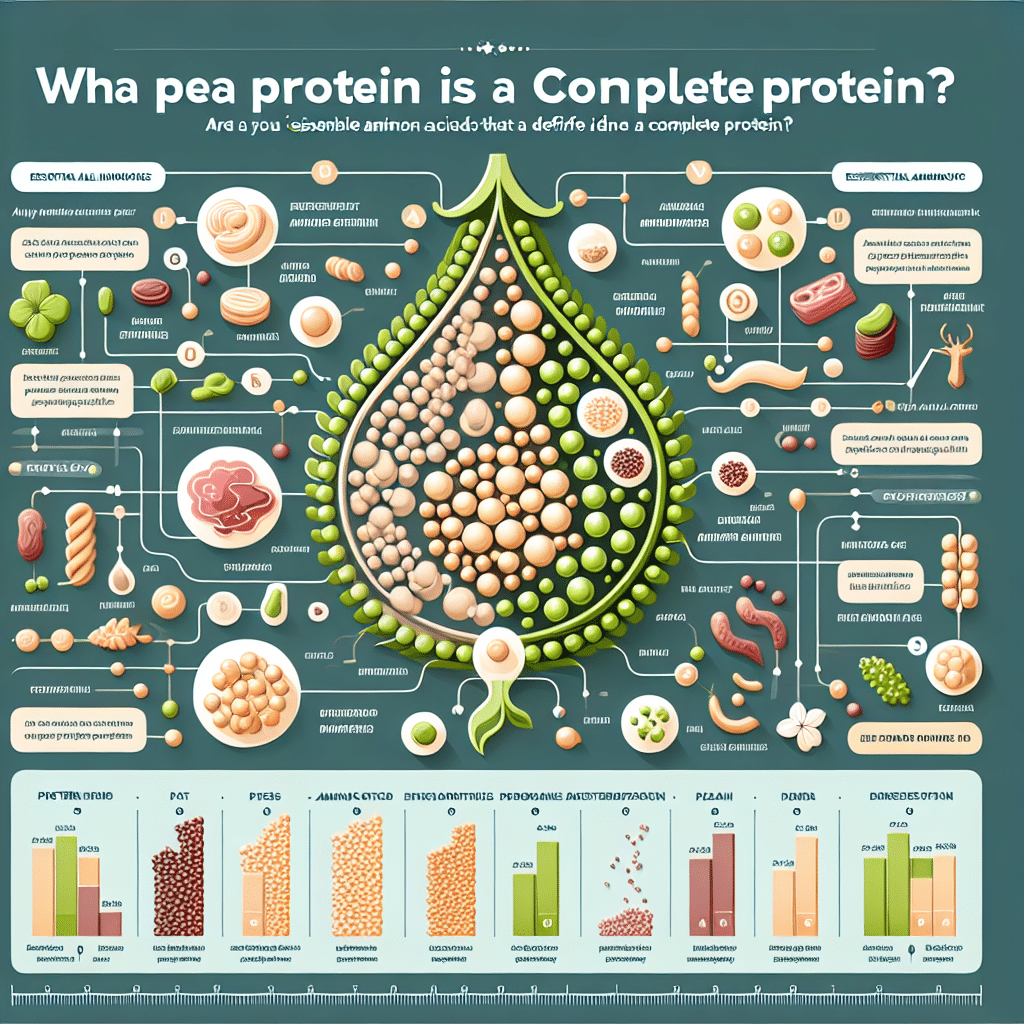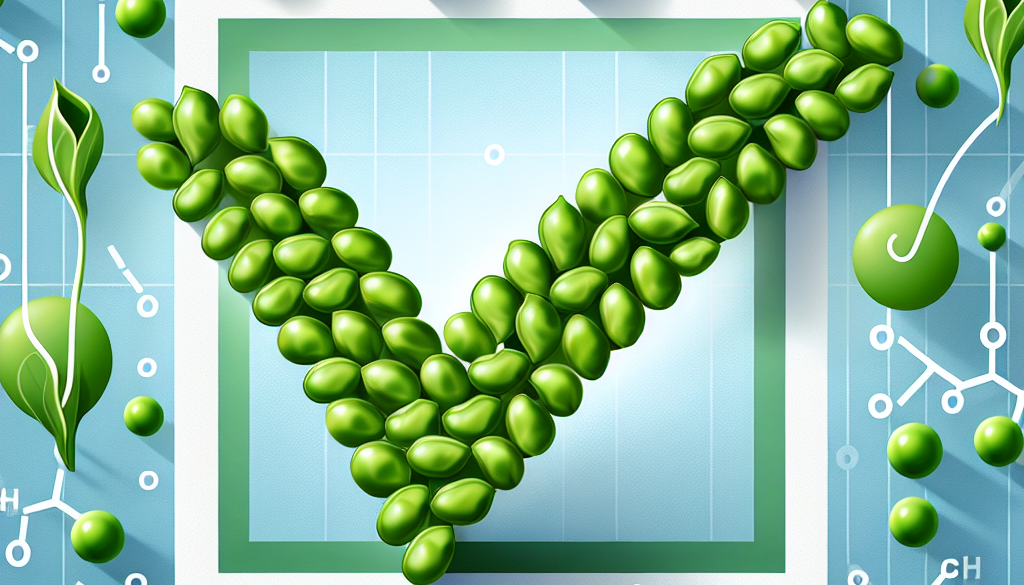Is Pea Protein a Complete Protein?
-
Table of Contents
Is Pea Protein a Complete Protein?

Pea protein has gained significant popularity in recent years as a plant-based alternative to animal-based protein sources. With the rise in vegan and vegetarian diets, pea protein has become a go-to option for individuals looking to meet their protein needs without consuming animal products. However, one question that often arises is whether pea protein is a complete protein. In this article, we will explore the concept of complete proteins, examine the amino acid profile of pea protein, and discuss its suitability as a complete protein source.
Understanding Complete Proteins
Before delving into the specifics of pea protein, it is essential to understand what constitutes a complete protein. A complete protein is one that contains all nine essential amino acids that the body cannot produce on its own. These amino acids are crucial for various bodily functions, including muscle growth, repair, and overall health.
Typically, complete proteins are found in animal-based sources such as meat, fish, eggs, and dairy products. These sources naturally contain all essential amino acids in the right proportions. However, for individuals following a plant-based diet, finding complete protein sources can be more challenging.
Amino Acid Profile of Pea Protein
Pea protein is derived from yellow peas and has gained popularity due to its high protein content and excellent amino acid profile. While it is not considered a complete protein on its own, it can be combined with other plant-based protein sources to create a complete amino acid profile.
Pea protein is particularly rich in branched-chain amino acids (BCAAs), which play a crucial role in muscle protein synthesis and recovery. It also contains high levels of arginine, an amino acid that supports healthy blood flow and cardiovascular function.
However, pea protein is relatively low in two essential amino acids: methionine and cysteine. These amino acids are abundant in animal-based protein sources but are limited in most plant-based proteins. This is where combining pea protein with other plant-based protein sources becomes important.
Combining Pea Protein with Other Plant-Based Proteins
To create a complete protein profile, individuals can combine pea protein with other plant-based protein sources that complement its amino acid deficiencies. For example, combining pea protein with rice protein can provide a complete amino acid profile, as rice protein is rich in methionine and cysteine, which are lacking in pea protein.
By combining different plant-based protein sources, individuals can ensure they are getting all the essential amino acids their bodies need for optimal health and muscle growth. This makes pea protein an excellent option for vegans, vegetarians, and individuals looking to reduce their consumption of animal products.
Benefits of Pea Protein
Pea protein offers several benefits that make it an attractive choice for individuals seeking a plant-based protein source:
- High Protein Content: Pea protein typically contains around 20-25 grams of protein per serving, making it an efficient way to meet daily protein requirements.
- Easy Digestion: Pea protein is easily digestible and does not cause the digestive discomfort that some individuals experience with other protein sources.
- Rich in Iron: Pea protein is a good source of iron, which is essential for oxygen transport, energy production, and overall health.
- Environmentally Friendly: Pea protein production has a lower environmental impact compared to animal-based protein sources, making it a more sustainable choice.
Conclusion
While pea protein is not considered a complete protein on its own, it can be combined with other plant-based protein sources to create a complete amino acid profile. By combining pea protein with sources rich in methionine and cysteine, individuals can ensure they are meeting their essential amino acid needs. Pea protein offers numerous benefits, including high protein content, easy digestion, and environmental sustainability. It is an excellent option for individuals following a plant-based diet or looking to reduce their consumption of animal products.
About ETprotein
ETprotein is a reputable protein Chinese factory manufacturer and supplier, renowned for producing, stocking, exporting, and delivering the highest quality organic bulk vegan protein and plant proteins. Their offerings, characterized by a neutral taste and non-GMO, allergen-free attributes, cater to a diverse range of industries. ETprotein serves nutraceutical, pharmaceutical, cosmeceutical, veterinary, as well as food and beverage finished product distributors, traders, and manufacturers across the globe.
ETprotein specializes in exporting and delivering tailor-made protein powder and finished nutritional supplements. Their extensive product range covers sectors like Food and Beverage, Sports Nutrition, Weight Management, Dietary Supplements, Health and Wellness Products, and Infant Formula, ensuring comprehensive solutions to meet all protein needs.
As a trusted company by leading global food and beverage brands and Fortune 500 companies, ETprotein reinforces China’s reputation in the global arena. For more information or to sample their products, please contact them at sales(at)ETprotein.com today.














